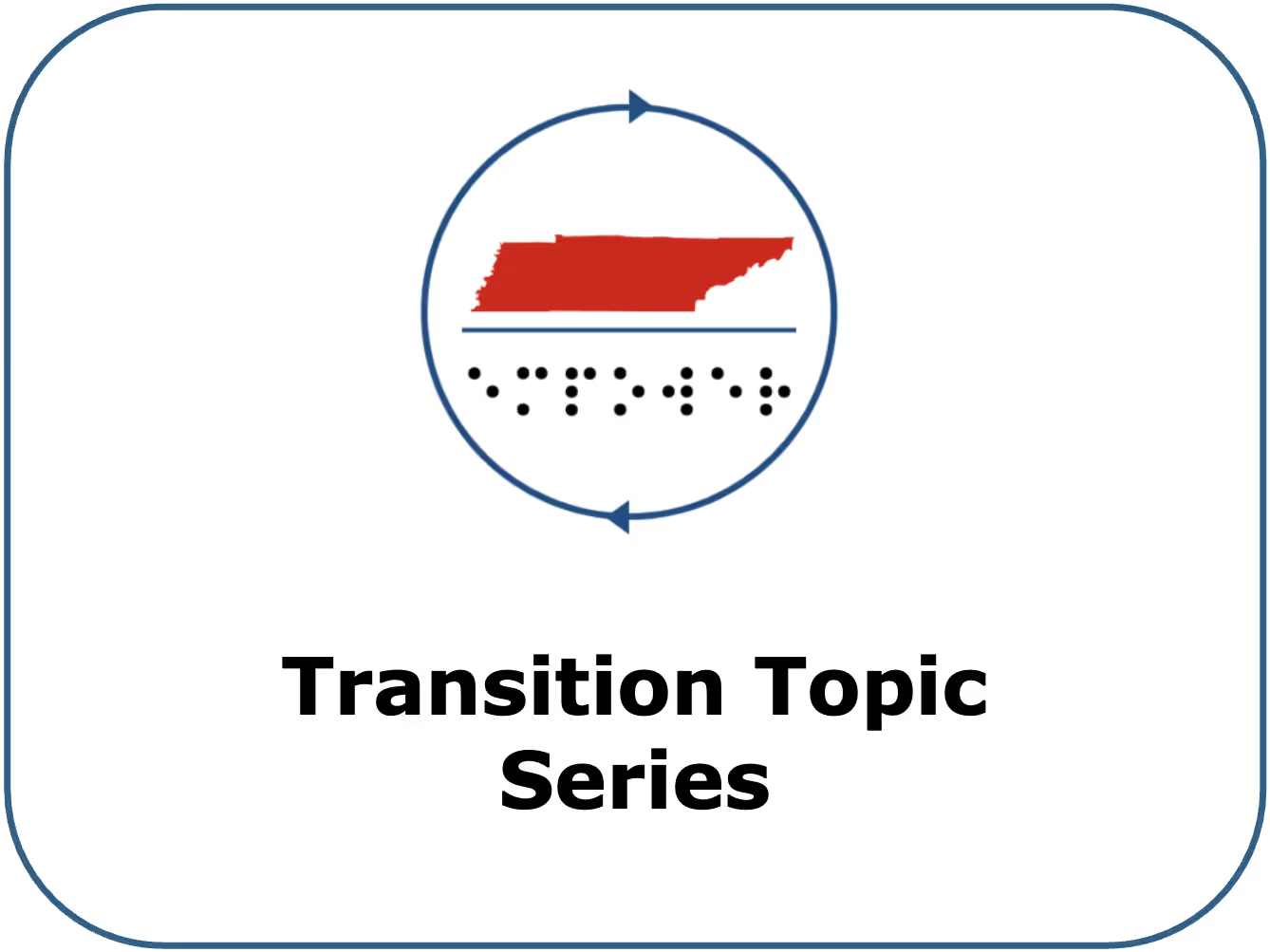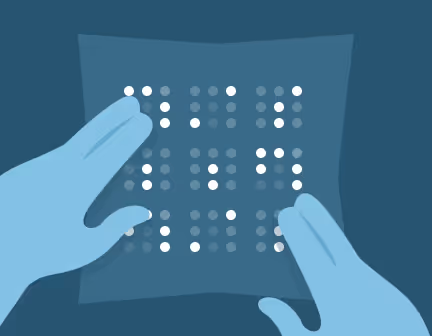Introduction to Guide Dogs Guide dogs can increase an individual’s confidence and ability to travel independently to various destinations, many of which may have never been considered before. This resource is for individuals who may be considering applying for a guide dog, are wondering what it means to be a guide dog handler, and where to go when they feel ready to start their guide dog journey.
Your Rights as a Guide Dog User A guide dog is a service animal. Service animals are individually trained to do work or perform tasks for a person with a disability. The Americans with Disabilities Act (ADA) requires public accommodations to modify policies, practices, and procedures to permit people who are blind or disabled to be accompanied by working dogs anywhere (ADA, Section 36.302(c)).
Public facilities that must abide by the ADA fall within at least one of the following categories:
Places of lodging Establishments serving food or drink Places of exhibition or entertainment Places of public gathering Sales or rental establishments Service establishments Stations used for specified public transportation Places of public display or collection Places of recreation Places of education Social service center establishments Places of exercise or recreation Responsibilities of Having a Guide Dog Being a guide dog handler comes with many responsibilities. A guide dog comes with the responsibility of taking care of a living being that has its own unique needs. You will need to meet the needs of your animal before they can help you travel and give you the desired confidence and security you seek.
As a guide dog handler, your duties may include, but are not limited to:
Taking the dog for daily walks. Scheduling and attending veterinary appointments. Having established routes that you can travel independently. Being able to take care of all your own daily living needs. Some questions you should ask yourself before applying for a guide dog include:
What makes you curious about getting a guide dog? Are you aware of the skills needed before owning a guide dog? Have you cared for a dog before, and do you know the responsibilities that come with dog ownership? Do you have a preference for dog breed? (this can impact the agency used) Application Process Each guide dog agency has an application process, and although they can differ slightly, many follow a similar pattern. It is important to note that the process is not simply applying for a guide dog and receiving one. Applying for a dog is a multi-step process that may take longer than anticipated.
The typical process will start by applying to a specific guide dog agency by submitting all required paperwork (see list of guide dog agencies below). If approved, the guide dog agency will schedule an in-home visit. During the visit, the agency will learn more about the applicant, the need for a guide dog, and the applicant’s skills. You may be asked to complete a Juno Walk (no dog, fake harness that assessor holds the front of) or to travel frequently traveled routes. After this visit, a determination will be made if the applicant is ready for a guide dog, or if they require more training. If successful, the applicant will be asked to take part in a training at the agency campus to learn how to work with a guide dog and to be paired with a companion.
Questions a guide dog agency may ask:
Do you have adequate cane skills? Do you have good proprioception skills? (The senses of position and movement of our limbs and trunk, the sense of effort, the sense of force, and the sense of heaviness). Are you generally healthy, with no major health concerns? Are you able to make and attend your health appointments? Do you know at least 3 routes to a destination from your residence to complete a Juno Walk? How independent are you in your home? Where is your home located? (They will want to know if there are many wild animals (e.g., squirrels, chipmunks) around that may require specific training for your guide dog). Orientation and Mobility (O&M) Training It is often thought that a guide dog will take you where you want to go. The reality is that these dogs are not a GPS. A user must know where they need to travel so the dog can do their job. The guide dog ensures the user’s safety and confidence by navigating around objects, crossing roads, and stopping when danger is imminent. To be accepted for a guide dog, the applicant must have adequate O&M skills.
For young people who are blind or have low vision, O&M is a service that is offered at school. O&M skills learned in school often include body/spatial awareness, cane skills, school navigation, and navigation of the local environment. Advanced O&M skills may consist of road crossings and navigating specific routes to areas of interest in an individual’s community (e.g., grocery stores, restaurants, and recreation centers).
When applying for a guide dog, one consideration that is often overlooked is an individual’s ability to travel routes, without the aid of a guide dog. Although these skills may have been considered and practiced at school, mastery may not have been achieved. O&M training is available after high school via adult agencies. For example, Vocational Rehabilitation (VR) can offer O&M training to individuals who need to learn a specific space. An example of this would include an individual who is offered a new job and needs to learn their new commute and the new building layout.
Another way to access O&M training after exiting high school is to attend an O&M intensive training program. Leader Dogs Orientation and Mobility Program and Guide Dogs for the Blind Orientation and Mobility Immersion Program are both available to residents in the USA, with a visual impairment. These programs are typically week-long, residential programs that take place on each campus. If accepted to these programs, travel, accommodation, and training are all paid for. During the training, individuals work toward their own goals and increase their O&M skills to the level they require to enhance their lives. Skills developed and taught at these programs include, but are not limited to:
Using a human guide Cane skills Re-orientation when traveling Crossing streets Accessing grocery stores Using auditory information to assist with travel Participating in simulations using a guide dog Scanning techniques These types of programs are also able to work on independent living skills, as they are hosted on a campus. Skills that can be developed include cooking, cleaning, and home organization.
Guide dog agencies While not intended to be exhaustive, this section lists some service dog agencies websites from various states and the contact information for these agencies.
Guide Dogs for the Blind (CA), contact: about-guide-dogs-for-the-blind/contact-us Guide Dogs of America (CA), contact: mail@guidedogsofamerica.org Guide Dogs of the Desert (CA), contact: info@gddca.org Fidelco (CT), contact: info@fidelco.org Dogs Inc. (FL), contact: https://dogsinc.org/connect/email-us/ Leader Dogs for the Blind (MI), contact: leaderdog@leaderdog.org NOAHs Dogs of Nebraska (NE), contact: noahsdogs1@gmail.com The Seeing Eye (NJ), contact: info@seeingeye.org Freedom Guide Dogs (NY), contact: info@freedomguidedogs.org Guide Dog Foundation (NY), contact: info@guidedog.org Guiding Eyes for the Blind (NY), contact: https://www.guidingeyes.org/contact-us/ Pilot Dogs (OH), contact: hello@pilotdogs.org Retrieving Independence (TN), contact: info@retrievingindependence.org Custom Canines Service Dog Academy (WI), contact: info@customcanines.org OccuPaws Guide Dog Association (WI), contact: info@occupaws.org Resources Use these additional resources to learn more about guide dogs, from guide dog focused agencies.
National Association of Guide Dog users (NAGDU) – this organization is dedicated to supporting individuals who are blind and utilize guide dogs for mobility, those considering obtaining a guide dog, and anyone interested in learning about the benefits and usage of guide dogs.
NFB – Guide dog resources – National Federation for the Blind – This resource lists guide dog agencies by state. Please note: to access a dog agency, you do not need to live in that state.







